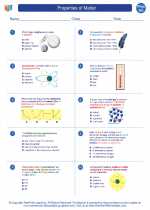Homeostasis
Homeostasis is the body's ability to maintain a stable internal environment despite external changes. It involves the regulation of various physiological processes such as temperature, blood pressure, and glucose levels to ensure that the body functions optimally.
Mechanisms of Homeostasis
There are several mechanisms through which homeostasis is achieved:
- Feedback Mechanisms: These are the processes by which the body monitors and responds to changes in the internal environment. There are two types of feedback mechanisms - negative feedback, which works to reverse the direction of a change, and positive feedback, which amplifies the change.
- Endocrine System: Hormones are secreted by endocrine glands to regulate various bodily functions and maintain homeostasis.
- Nervous System: The nervous system plays a crucial role in monitoring and responding to changes in the internal and external environment to maintain homeostasis.
Importance of Homeostasis
Homeostasis is essential for the body to function properly and to maintain overall health. When homeostasis is disrupted, it can lead to various health issues and diseases.
Study Guide
To study homeostasis, it is important to understand the following concepts:
- The mechanisms of homeostasis, including feedback mechanisms, the endocrine system, and the nervous system.
- Examples of homeostasis in action, such as the regulation of body temperature, blood pressure, and blood sugar levels.
- The importance of homeostasis for overall health and well-being.
Additionally, it is useful to familiarize yourself with specific examples and case studies related to homeostasis to better understand how it applies to real-life situations.
Understanding homeostasis is crucial for anyone studying biology, physiology, or related fields, as it forms the foundation for understanding how the body maintains equilibrium and responds to internal and external changes.
.◂Physics Worksheets and Study Guides High School. Properties of Matter

 Worksheet/Answer key
Worksheet/Answer key
 Worksheet/Answer key
Worksheet/Answer key
 Worksheet/Answer key
Worksheet/Answer key
